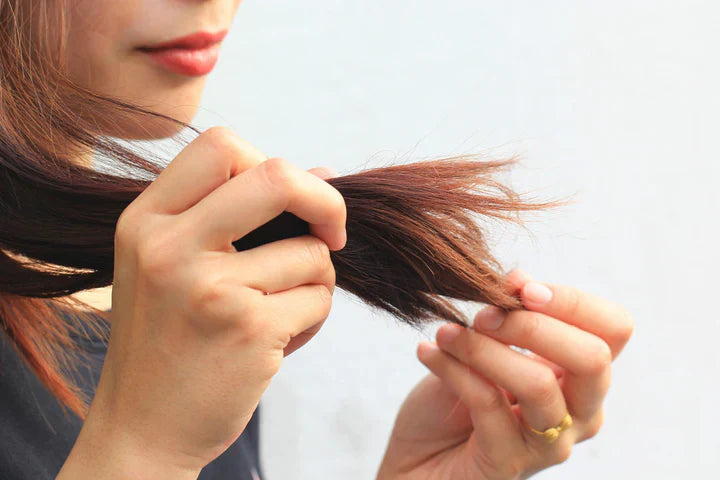
My Hair Is Thinning - The First 11 Things You Should Do
Share
My Hair Is Thinning – The First 11 Things You Should Do
If your hair suddenly feels thinner, you’re not alone. Up to 85% of men and 55% of women experience some form of hair loss or thinning during their lifetime. While it can be alarming, it’s not always a cause for panic—and often, the earlier you act, the better your chances of recovery.
Hair thinning can result from various factors, including hormonal changes, nutrient deficiencies, stress, or even tight hairstyles. In many cases, simple lifestyle changes and the right treatments can help restore your hair’s health and fullness.
What Causes Thinning Hair?
Hair thinning may stem from:
-
Genetics or age
-
Hormonal imbalances
-
Nutritional deficiencies
-
Chronic stress
-
Over-styling and harsh chemical treatments
-
Medical conditions like alopecia or thyroid disorders
Lifestyle Habits That May Contribute:
-
Overuse of heat tools, coloring, relaxing, or perming
-
Tight hairstyles (ponytails, braids, buns) that pull at the roots
-
Using harsh hair products like strong gels and sprays
-
Poor diet lacking in iron, protein, or vitamins
-
Long-term stress increasing cortisol and triggering hair fall
Top 11 Things To Do If You Notice Hair Thinning
1. Visit a Dermatologist
A board-certified dermatologist can help identify the root cause of your hair loss—whether it’s hormonal, medical, or lifestyle-related—and recommend an effective treatment.
2. Use Gentle Hair Care
-
Choose a sulfate-free, moisturizing shampoo
-
Always follow with a hydrating conditioner
-
Use leave-in conditioners or detanglers to prevent breakage
-
Wrap wet hair in a microfiber towel to minimize damage
3. Avoid Tight Hairstyles
Tight buns and ponytails cause tension and may lead to traction alopecia. Opt for loose, protective hairstyles to reduce stress on your scalp.
4. Eat a Balanced Diet
Nutrients like protein, iron, biotin, zinc, and folic acid are crucial for healthy hair. Include leafy greens, eggs, nuts, meat, and fish in your meals.
5. Check Your Vitamin Levels
Low Vitamin D or B12 can slow down hair growth and worsen thinning. Consult your doctor to check levels before starting any supplements.
6. Listen to Your Body
Hair thinning might be a symptom of an underlying condition, such as thyroid issues, PCOS, or anemia. Seek medical advice if you notice other symptoms.
7. Stop DIY Chemical Treatments
Avoid home coloring, perming, or relaxing. If you must, go to a professional salon with expertise in handling thinning hair and sensitive scalps.
8. Wash Less Frequently
Overwashing can strip your hair of its natural oils. Choose a shampoo based on your hair type and wash only as needed—typically 2–3 times a week.
9. Take Care of Your Scalp
Use scalp-friendly products or gentle scalp scrubs to clean buildup and promote circulation. Scalp massage (with or without oil) can also improve blood flow and stimulate growth.
10. Monitor Your Iron Levels
Iron deficiency is a common cause of hair thinning. Include more iron-rich foods like red meat, lentils, or consider a supplement if prescribed.
11. Increase Protein Intake
Hair is made of keratin, a type of protein. Boosting your protein intake with meat, fish, eggs, and legumes can help strengthen strands and encourage growth.
✅ Final Thoughts
Thinning hair doesn’t have to be permanent. With early action, the right guidance, and consistent care, you can improve your hair’s health and volume naturally.
